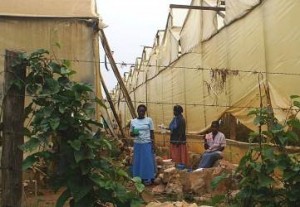Mother´s Day- Flowers for Human Rights

Green Shopping Guide Österreich: http://bewusstkaufen.at
NATIONAL GEOGRAPHIC – GREEN GUIDE
Lotus Flower – Symbol of Purity and Great Beauty!
The modern Mother’s Day is celebrated on various days in many parts of the world, most commonly in May, though also in March, as a day to honor mothers and motherhood. In the United States it was nationally recognized as a holiday in 1914 after a campaign by Anna Jarvis. In some countries, it follows the old traditions of Mothering Sunday. Read More: > HERE <
Mother’s Day (U.S.) is an annual holiday that recognizes mothers, motherhood and maternal bonds in general, as well the positive contributions that they make to society. In the United States, it is celebrated on the second Sunday in May. Read More: > HERE <
Flowers around the globe – Are you aware that the cut flower you buy in the supermarket or at your florist might have travelled thousands of kilometres to please you at home or in the office? Indeed, an increasing share of flowers which are sold in Europe is grown in countries close to the equator.
Do you wonder why? Around the equator conditions for growing flowers are more favourable than in Europe. Those countries don’t have cold winters, they constantly have 12 hours daylight and they have fertile soil. Labour is cheap and, labour and environmental laws are not as strict as in Europe, or at least, they are not enforced.
Are you concerned about the latter? We, too, are. That’s why we have started a campaign to raise awareness on labour rights, workers‘ health, and environmental protection in the flower industry. Join us and be part of the change.
The campaign „Fair Flowers for Human Rights“ – Non-governmental organisations from Austria, Belgium, Germany, and Czech Republic have jointly started a campaign to raise awareness on human rights violations and environmental pollution by the global flower industry. The campaign is supported by the Zimbabwean Non-Governmental Organisation Kunzwana and the Uganda Workers‘ Education Association.
The campaign targets consumers, flower traders and local authorities and it aims at changing their consumption and purchasing patterns towards ensuring that flowers are produced in socially and environmentally sound conditions.
As means to reach our targets we will produce information material, organise exhibitions and speakers‘ tours of flower workers, produce a movie, conduct workshops and lobby politicians. We will be present at various public events. You can read more on the specific actions in each country if you click on the logos of the campaign partners below. http://www.flowers-for-human-dignity.org/09/index.php/the-campaign.html
Fair trade roses for Mother´s Day & Human Rights
Da die heimische Schnittblumenproduktion die Nachfrage am österreichischen Markt nicht befriedigen kann, werden fast zwei Drittel der in Österreich verkauften Blumen aus Ländern des Südens importiert. Jährlich sind das zum Beispiel gut 80 Millionen Rosen. Auf den Blumenfarmen in Kenia, Uganda, Simbabwe, Ecuador und Kolumbien arbeiten zum Großteil Frauen, vielfach unter katastrophalen Arbeitsbedingungen.
Besonders vor dem Muttertag und den Valentinstag leisten sie Überstunden bis spät in die Nacht, oft werden diese nicht oder nicht vollständig bezahlt. Die Frauen berichten von gesundheitlichen Schäden aufgrund der Arbeit mit hoch giftigen Pestiziden und mangelndem Arbeitsschutz, auf manchen Farmen auch von sexueller Belästigung.
„Für die Frauen bedeutet die Arbeit auf den Blumenfarmen ein wichtiges Einkommen. Besonders in Lateinamerika arbeiten viele allein erziehende Mütter auf den Farmen. Sie benötigen dringend einen angemessenen Lohn, um sich und ihre Kinder adäquat ernähren zu können.“, berichtet Sophie Veßel, Koordinatorin der Kampagne „ Fair Flowers – mit Blumen für Menschenrechte “ bei der Menschenrechtsorganisation FIAN Österreich.
FIAN setzt sich seit vielen Jahren für die Rechte der ArbeiterInnen auf Schnittblumenfarmen weltweit ein. In Betrieben, die mit dem Gütesiegel Flower Label Program (FLP) zertifiziert wurden, werden Arbeits- und Menschenrechte eingehalten. Die Arbeitszeiten sind in langfristigen Verträgen geregelt, Überstunden werden angemessen bezahlt. Entsprechende Kleidung schützt die ArbeiterInnen vor den Chemikalien. Hoch giftige Pestizide dürfen überhaupt nicht eingesetzt werden. Für Frauen ist insbesondere wichtig, dass ihnen bezahlter Mutterschutzurlaub gewährt wird, sie während der Schwangerschaft geschont werden und sexuelle Belästigung nicht geduldet wird.
Daher empfehlen FIAN und die Volkshilfe Österreich, beim Blumenkauf zu Blumen der Gütesiegel Flower Label Program (FLP) und FAIRTRADE zu greifen. „Blumen, die unter fairen Arbeitsbedingungen produziert wurden, sind ein besonders sinnvolles Geschenk. Denn sie unterstützen den Kampf gegen Ausbeutung von ArbeiterInnen.“, meint Josef Weidenholzer, Präsident der Volkshilfe Österreich. „Mit dem Kauf solcher Blumen können Sie doppelte Freude schenken. Der eigenen Mutter und der Blumenarbeiterin.“ Dass die Blumen nicht mit hoch giftigen Pestizid en belastet sind, trägt sicher zusätzlich zur Freude der Beschenkten bei!
FLP-Blumen verschiedener Sorten finden Sie im ausgewählten österreichischen Fachhandel, FAIRTRADE-Rosen in Supermärkten und im Fachhandel.
- AFRICAN TRADITIONAL MEDICINE <
- Weitere Informationen:
- www.fian.at (FLP-HändlerInnenliste)
- www.volkshilfe.at
- www.flowers-for-human-dignity.org
- www.fairflowers.at (FLP-HändlerInnenliste)
- The New 2008 Constitution of Ecuador <
- Meet Human Rights Campain, friends at fb <
- Meet FAIR TRADE certificied, friends at fb <
- Meet Human Rights Watch, friends at fb <
- Meet National Geographic, Green Guide, friends, fans at fb <
Comments are closed.